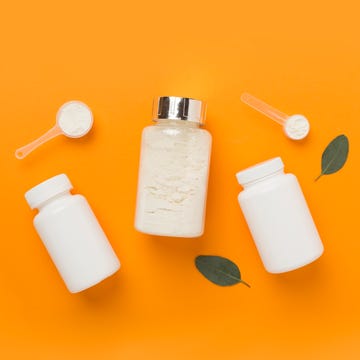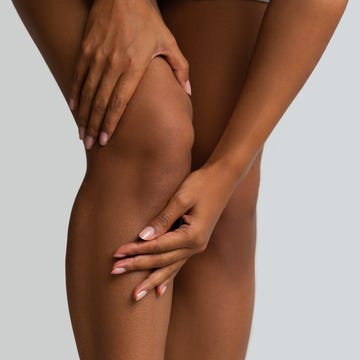You’re at a party. Or a meeting. A book group. Worse still, an interview or - the horror - a date. Either way, you will imminently be forced to talk to someone at awkwardly close quarters. And the thought inevitably occurs to you: do I have bad breath?
The answer is probably not. One research study, which combed through the findings of 13 medical journal articles, found that halitosis only impacts about 31.8% of the population.
There's more. If you are suffering it doesn’t necessarily mean you’ve eaten your body weight in garlic or failed to floss. 'Poor oral hygiene - plaque and food products can cause a bad smell,' says Dr Manrina Rhode, one of the world's top cosmetic dentists. A build-up of plaque can also produce gum disease and 'infections under the gum line can produce persistent bad breath,' she explains. Similarly: 'foods like garlic, onions, coffee, and alcohol contribute directly to odour.'
What to read next
That said, there are plenty of other potential causes that have nothing to do with your oral hygiene. Dry mouth, or xerostomia, is one. 'Saliva helps cleanse the mouth and low flow leads to odour buildup,' says. Rhode. 'Also medical conditions - sinus infections, acid reflux, tonsil stones or diabetes can lead to bad breath when not managed.'
Then there’s hormones. Your likelihood of having bad breath rises when you’re subject to dramatic changes in your hormone levels. During the menopause, for example, fluctuations mess with your stomach acid levels, causing 47% of women to experience heartburn which is unpleasant enough but also causes bad breath with the acid travels up your oesophagus. Those altered hormonal levels also alter the mucus membrane inside your mouth, causing a dry mouth that can also head to bad breath.
What doesn’t work?
When you’re feeling self-conscious about your breath, what do you reach for first? Mouthwash? 'It temporarily masks smell,' says Rhode. 'But especially if it’s alcohol-based, it can dry the mouth and worsens the problem long term.'
How about chewing gum or mints? 'They’ll briefly freshen breath but won’t treat the root cause,' she says. Giving your teeth an extra scrub? Nope, says Rhode: 'most bad breath originates from the tongue and gums, not just teeth.' And definitely don’t try charcoal toothpaste: 'it’s often abrasive and ineffective against odour-causing bacteria,' is Rhode’s verdict.
What does work?
Rhode’s top tip? Drink water. She also suggests trying sugar-free gum: 'chewing boosts saliva production to neutralise acids and cleanse the mouth.'
If digestive issues or other health issues are the cause of bad breath, then you’ll need to address the root cause with your GP. Similarly, if gum disease is behind your problems, though, there’s only one thing to do: 'professional cleaning with a hygienist, therapist or dentist and periodontal care will eliminate the bacteria at the source,' she says. Open wide…













